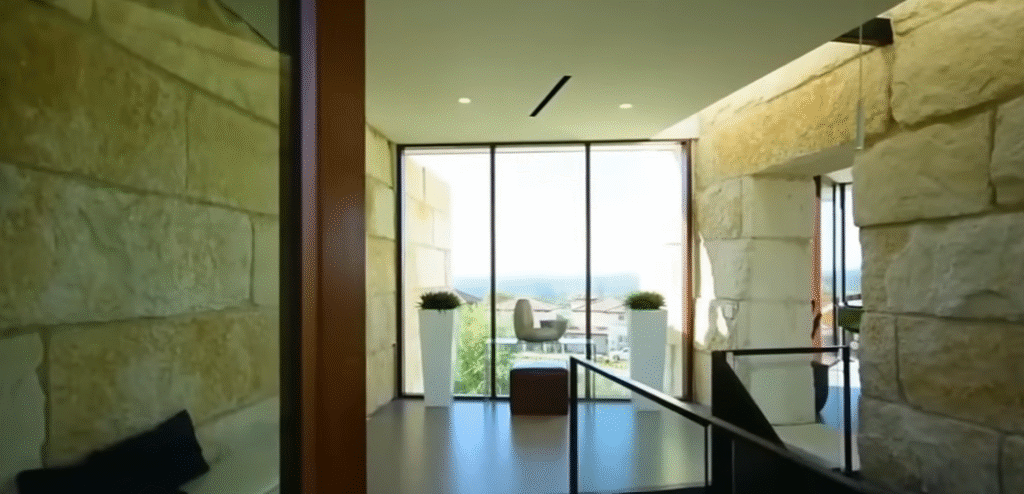The Texas Built Construction lawsuit has swiftly come to represent the speed at which a reputable homebuilding brand can disintegrate due to poor management and unfulfilled promises. The company, which was once marketed as a full-service construction company offering “turnkey” solutions, is currently dealing with numerous lawsuits from irate homeowners and subcontractors who accuse it of financial misconduct, poor workmanship, and deceit.
Numerous clients recount strikingly similar experiences: months-long projects, payments that disappeared without any outcome, and unanswered refund requests. A Plano customer who spent almost $45,000 described the experience as “the most exhausting ordeal of my life.” She claimed that she had to file a lawsuit because her lawyer’s demand letter had been totally disregarded. Her experience exemplifies the growing dissatisfaction among Texas homeowners who relied on contractors to transform their investments into their ideal residences.
Deep structural problems in Texas’ construction industry are brought to light by these cases. Before filing a lawsuit, homeowners are required by the Residential Construction Liability Act (RCLA) to provide contractors with written notice of any defects and give them a chance to fix them. Although the law is intended to promote resolution, many homeowners contend that it frequently serves builders’ interests by postponing justice and giving them time to hide evidence of carelessness. Such cases highlight the pressing need for accountability and transparency in residential contracting, according to attorneys throughout the state.
Profile — Texas Built Construction (TBC)
| Category | Details |
|---|---|
| Company Name | Texas Built Construction LLC |
| Headquarters | Plano, Texas |
| Industry | Residential and Commercial Construction |
| Key Figures | Cliff Campbell, Dylan Harris, and Nick Johnson (Management and Ownership) |
| Allegations | Breach of contract, failure to perform, delays, poor workmanship, and refusal to refund clients |
| Notable Case | Panm Group, LLC v. TBC Holdings Group LLC d/b/a Texas Built Construction (Collin County District Court, Case No. 493-00992-2024) |
| Legal Framework | Residential Construction Liability Act (RCLA) – Texas Property Code, Chapter 27 |
| Complaints Filed | Over 18 known lawsuits filed by homeowners and subcontractors across Texas |
| Reference Source | www.trellis.law and www.yelp.com (Texas Built Construction – Plano, TX) |

Panm Group LLC v. TBC Holdings Group LLC is the lawsuit filed against Texas Built Construction. It alleges deceptive practices, negligent performance, and breach of contract. The company diverted funds to unrelated projects while misrepresenting progress, according to the plaintiffs. Additionally, a number of subcontractors claim they were never paid, which compelled them to leave construction sites and place liens against homes—a particularly harmful practice that holds homeowners accountable for unpaid invoices and incomplete work.
A more thorough examination of TBC’s business practices reveals a concerning situation. Numerous internet reviews accuse the company of deleting negative comments and changing its name to evade legal scrutiny. One reviewer referred to the company as “a revolving door of excuses and errors” after describing a young, inexperienced project manager who frequently scheduled drywall installation before plumbing inspections. The stories have a remarkably similar vibe, pointing to systemic problems rather than isolated ones.
Under the Texas Deceptive Trade Practices Act (DTPA) and the RCLA, which govern how builders manage client funds, fulfill contracts, and address complaints, industry insiders think the Texas Built Construction case may establish a significant precedent. Although written warranties are permitted by Texas law to limit liability, many small and mid-sized builders, including TBC, do not provide clear definitions of them, leaving customers especially at risk when flaws occur.
The statute of repose for builders who include warranties that satisfy certain requirements has been significantly shortened from ten years to six years by recent amendments made through House Bill 2024. These guarantees must cover structural elements for at least six years, major systems for two years, and general workmanship for at least one year. Although the goal of this new framework is to encourage builders to take more initiative, some contend it allows careless businesses to avoid responsibility more quickly.
A focal point for more extensive legal reform is the Texas Built Construction case. Lawyers like Fee, Smith & Sharp LLP and Gerstle Snelson LLP have highlighted how these cases highlight how flimsy consumer protections are in a market that is expanding quickly. The surge in demand for new homes in Texas has made it easier for unskilled contractors and businesses with lax regulations to thrive. Despite being profitable, this trend has damaged homeowner-construction industry trust, which is what lawsuits like this one aim to address.
The psychological consequences for homeowners are especially devastating, even outside of the legal framework. Families describe restless nights spent surrounded by partially poured foundations, incomplete walls, and growing debt. Anxiety arises from the desire to become a homeowner, which is a fundamental aspect of stability. One Denton family said that “the house became a construction graveyard of broken promises” while they watched their remodel stall for thirteen months. Such accounts demonstrate not only monetary loss but also the decline of hope.
This case serves as a focal point for reform, according to consumer advocates. They contend that the Texas Built Construction case emphasizes the necessity of requiring residential contractors to be licensed, a requirement that is already in place in many states. Homeowners must rely entirely on references and internet reviews because Texas does not currently require general residential builders to hold a formal license. This lack of regulation has made it possible for dishonest businesses to flourish, particularly in rapidly expanding suburbs where demand for construction exceeds laws.

